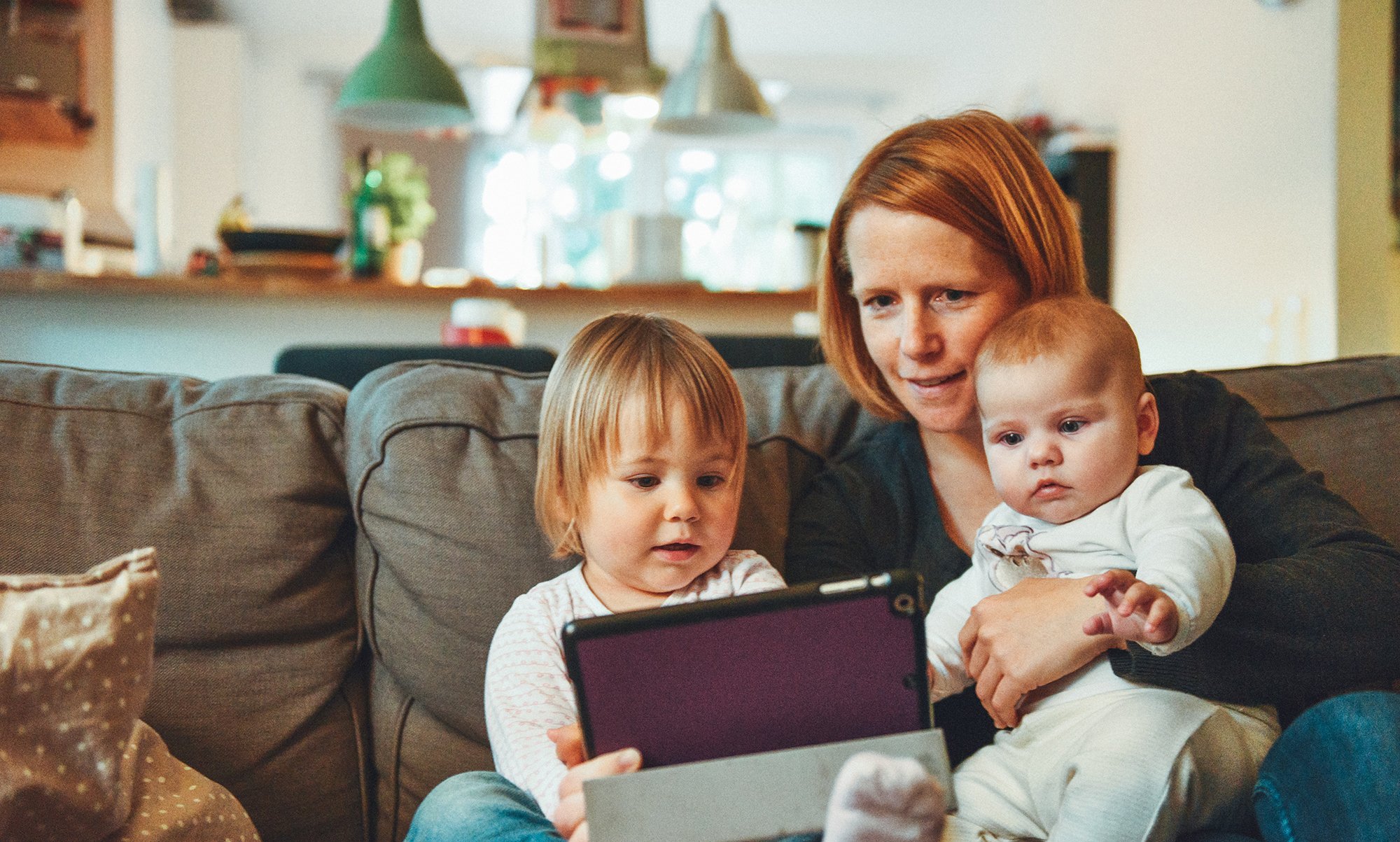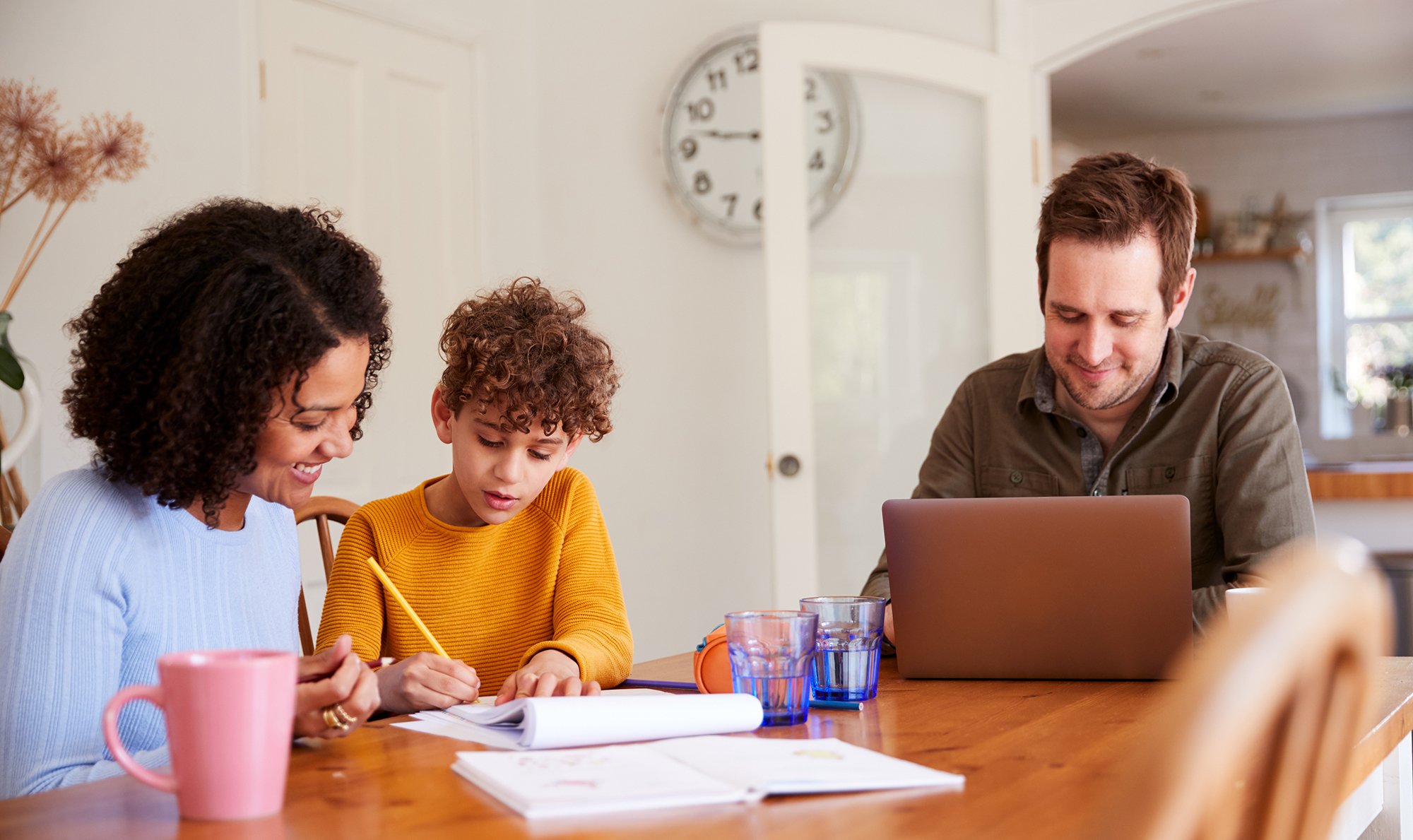
This time of being at home has been sudden with little time to plan. This is especially true for students and the quick closing of schools. Parents may still be working, students may need to do school online in some fashion, and outside face-to-face contact may be limited. How can a parent deal with being the main teacher of their children so suddenly?
Parents have always been their child’s first, and most important teacher. It is important to remember that everyday activities at home may be used as a teachable moment. Think about how to do math when cooking, after all recipes are about measuring and following instructions. Building things with boxes, paper, or sofa pillows can be an exploration in creativity and imagination when play is storytelling. Recording a video showing how to do something (like how to make a sandwich) is one way students may use communication, problem-solving, technology literacy, critical thinking, creativity, and persistence skills to name a few.
Don’t try to duplicate the school schedule
One thing that is very important for parents to remember is that they should not expect to duplicate the school day all day long. There is a lot of extraneous time during the school day such as transition time between classes, break time, recess, and other times. Spending a scheduled amount of time learning is the goal, not a certain number of hours or minutes a day spent in “school.” Parents who homeschool their children usually do not have a schedule like schools do. Learning is much more fluid and takes advantage of learning opportunities that arise in everyday activities, with a flexible schedule. This is true for all students including students with disabilities, those who are twice-exceptional, and gifted students.

Want more encouragement?
You’re not alone. Wading through continued shelter-in-place orders while you try to balance life and remote work on top of guiding your children’s education is hard. We want to help. Sign up for our weekly encouragement emails to get a dose of humor, resources, and tips in your inbox every Wednesday morning.
Learning time will differ between families
Learning time will be different for each family, and rightly so. Engage your student in creating their own schedule, and with your approval, implementing it. Ask your student what they would like to learn and to create a plan of how they will do it. If they want to learn about weather, for example, they can graph the daily weather forecast and the actual weather (temperature, humidity, clouds, precipitation, etc.) as a math/science activity; they can explore the weather in six different countries around the globe by monitoring the weather and its impact on life there (seasons, crops, flooding, storms, etc.) while also learning about the cultures of those countries as a science/social studies/geography activity; they can also read about the weather by accessing ebooks at the website of the local library, or some free sites (listed below); finally, your student can write about or create a presentation or video of what they learned as the culminating activity and present it to the whole family. If you record the presentation, your student may then send it to grandparents and other family or friends, and their teacher to stay in touch and showcase their learning.
Explore the arts
In addition, the arts are important to explore at home. Follow the student’s lead in creating art or doing arts and crafts, practicing or learning a musical instrument, singing or doing karaoke, dancing, acting out a story, and other fine arts activities as they are important to help develop the brain and are fun. Remember to include time to go outside and play, walk the dog, or do other activities, and have some unscheduled down time. Students need to develop important skills to independently occupy themselves, so they need time with nothing scheduled to have a brain break and freedom to just be.
Stay encouraged
Think big picture. How can learning take place with students driving their own learning? This is what is needed in our 21st century world. Be confident in what you do as a parent and enlist your student’s help, so they take responsibility for their own learning. It builds self-determination skills, confidence, flexibility, and many other important life skills.
Together with your student(s) you and they will learn together and realize that so much learning takes place outside of the four walls of a classroom. God will bless the time you spend learning together.
This post was written by Dr. Wanda Routier, the director of graduate special education programs and associate professor of education at Concordia University-Wisconsin.
—